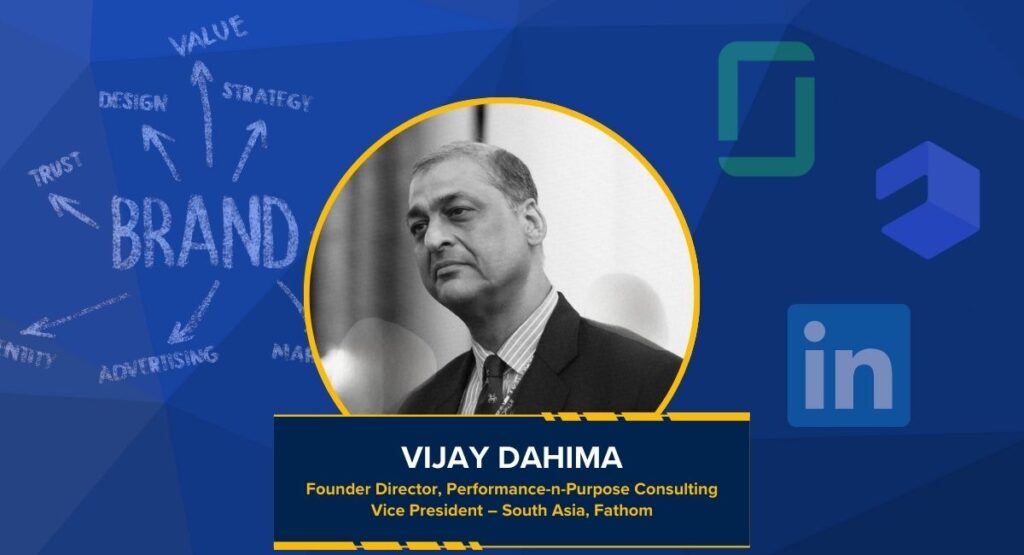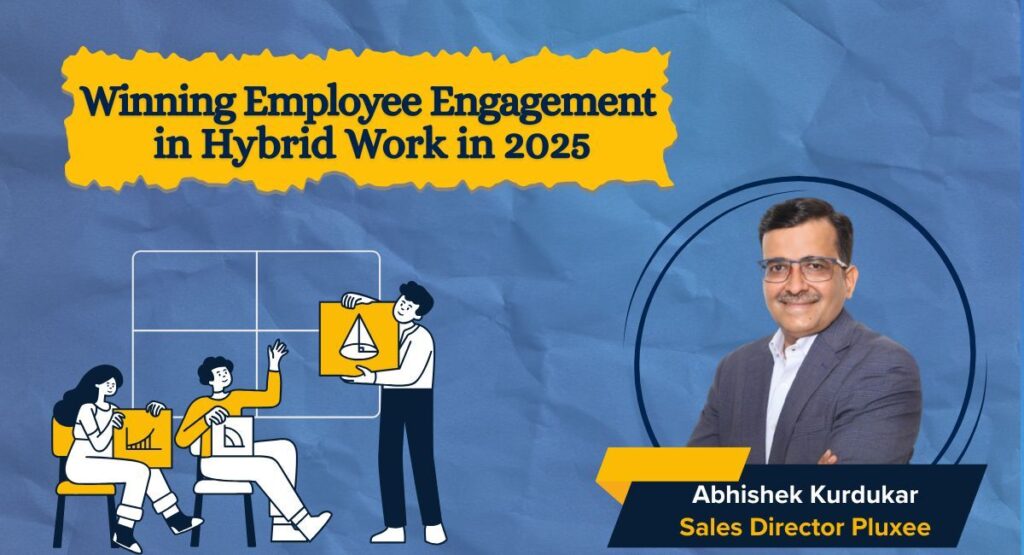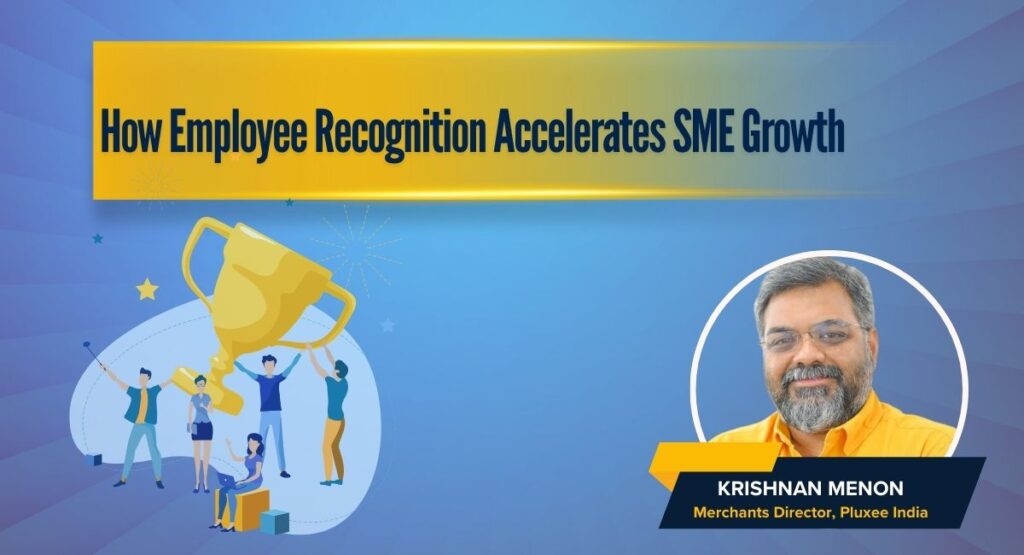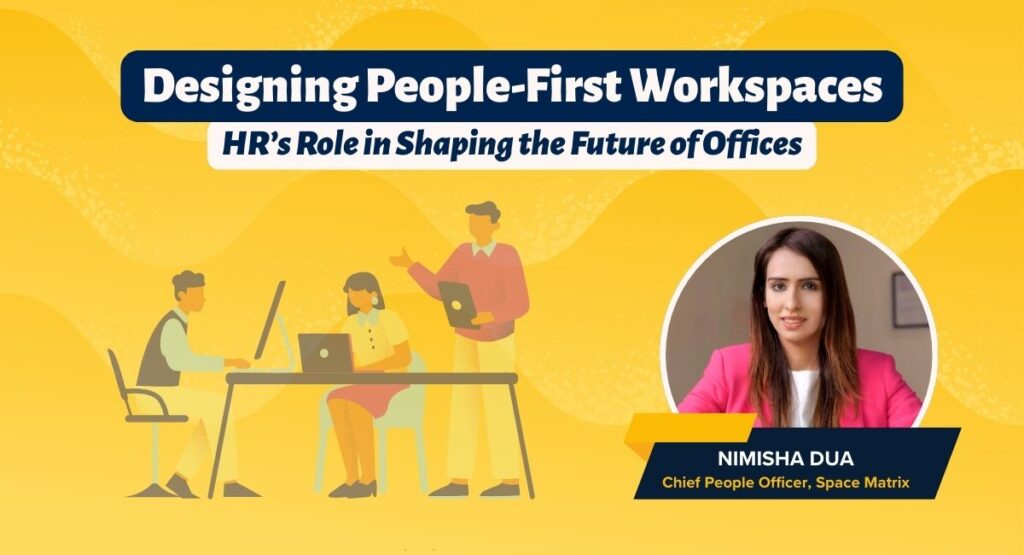The game of creating a good impression during the hiring process has now become a two-way street. Where once employees were solely responsible for creating a good impression, employers today also have to prove why new talent should come and work for them.
This is where Employer Branding comes into play. With effective strategies, companies can demonstrate how they exceed the bare minimum required of them in caring for their employees, thereby fostering a truly collaborative workspace.
To shed more light on the evolving trends in Employer Branding in India, ThePeoplesBoard team talked with Vijay Dahima, Vice President – South Asia at Fathom and Founder Director of Performance-n-Purpose Consulting. With over three decades of experience, Vijay is a huge advocate of the necessity of employer branding.
TPB Team: Why is employer branding becoming increasingly important in the Indian market today?
Vijay Dahima: Employer branding in India has shifted from “nice-to-have” to a survival strategy.
With talent shortages and skills gaps at record highs, employees now hold the balance of power. Candidates evaluate companies long before a recruiter calls, scrutinising Glassdoor reviews, LinkedIn activity, and whispered reputations. Salary still matters, but it’s no longer the differentiator; culture, growth, and purpose are the true magnets. In India’s hyper-competitive market, where attrition costs can quietly gut profitability, employer branding is the single lever that aligns perception with reality. Done well, it transforms employees into advocates, reduces hiring costs, and turns “job-seekers” into loyalists. In short: branding now isn’t window dressing; it’s the new currency of trust.
Employer Branding’s rise and relevance, therefore, as a strategic talent function, can be attributed to influencing several key areas of corporate strategy, viz Talent Attraction & Retention, Culture & Engagement, Diversity & Inclusion and Reputation & Crisis Resilience.
TPB Team: How can organisations shift from reactive, event-driven employer branding to a proactive, enduring cultural strategy?
Vijay Dahima: “Employer branding isn’t a campaign—it’s a culture. The moment you treat it like fireworks instead of a lighthouse, you lose its power.”
The future requires ‘always-on’ cultural strategies. By codifying a clear Employer Value Proposition (EVP) that reflects lived employee experiences, not HR slogans, organisations need to integrate this EVP into every talent lifecycle stage—hiring, onboarding, recognition, alumni engagement, and then measuring it continuously, not campaign by campaign.
Advocacy is the new attraction: your most credible storytellers are employees who share authentic experiences daily. Shifting from reactive to proactive means treating employer branding as a cultural operating system—embedded, measurable, and built to outlast leadership cycles.
TPB Team: In recent years, how have EVP drivers such as work-life balance, equity, and reputation reshaped the strategic priorities of Indian employers?
Vijay Dahima: The EVP pillars of work-life balance, equity, and reputation have flipped traditional talent priorities on their head. In India, flexible work is no longer the “startup perk”—it’s the expectation, with employees equating balance to respect. Equity, too, has broadened beyond gender to include caste, region, and socio-economic inclusion, pushing companies to walk the talk on DEI.
Meanwhile, reputation has become hyper-visible: a single poor Glassdoor review can derail a campus recruitment drive. These shifts compel Indian employers to move beyond salary-centric models to holistic employee value propositions. Therefore, the EVP must demonstrate fairness, balance, and authenticity—because today’s candidates aren’t just buying a job, they’re buying into a culture. Firms failing to deliver on these expectations now face higher attrition and a diminishing ability to compete for the best talent.
TPB Team: With rising visibility on platforms like Glassdoor and LinkedIn, how should Indian companies adapt to the growing demand for transparency and authenticity?
Vijay Dahima: The age of glossy brochures is over. Today’s candidates conduct forensic audits of your culture across Glassdoor, LinkedIn, and WhatsApp groups before hitting “apply”. Forward-thinking Indian companies should stop stage-managing the narrative and dare to own their flaws, not just their strengths. Address negative reviews swiftly by having the leadership visible and answerable. Employees trust firms that show vulnerability alongside ambition by sharing stories of setbacks and learnings, not just achievements.
By embracing radical candour and making transparency a default, organisations signal confidence that their culture can withstand scrutiny, building trust and loyalty in a marketplace.
In India, where word-of-mouth is culturally powerful, authenticity is not just attractive—it’s the ultimate retention strategy.
TPB Team: Gen Z and talent from tier-2/3 cities bring unique aspirations around mental health, growth, and purpose. How should organisations customise employer branding to connect with these groups?
Vijay Dahima: Gen Z and India’s tier-2/3 city talent cohorts are unapologetically clear: they prioritise mental well-being, skill development, and sense of purpose when evaluating employers. One 2025 pan-India survey found that over 65% of Gen Z professionals rank mental health resources as a top workplace priority, while more than half of job seekers from smaller cities look for employers who invest in growth and community impact. Data also points to increased retention when organisations tailor their employer brand with authentic messaging on holistic wellness, upskilling, and meaningful work
One standout example in this case is Infosys, which excelled at customising employer branding through their “iEngage” initiative, fostering inclusivity, two-way communication and mental well-being, while open learning platforms and localised outreach target upskilling and growth for diverse talent pools.
Therefore, it is evident that Employer branding here must be localised and humanised: speak in regional languages, highlight relatable role models, and showcase growth stories of employees from similar backgrounds. Gen Z in particular values unfiltered storytelling—videos, reels, and authentic voices, not corporate-speak. By making growth personal and purpose tangible, companies can unlock loyalty from the very demographics shaping India’s future workforce.
TPB Team: Sustainability and community impact resonate strongly with Indian cultural values. How are companies embedding these elements into their employer brand?
Vijay Dahima: In India, sustainability and community impact are not PR checkboxes; they tap into deeply held cultural values of seva (service) and stewardship. Leading companies are embedding sustainability into everyday work, not just CSR reports—Infosys links tech innovation to green energy, while Tata integrates community upliftment into its EVP. Employees want to feel their daily roles contribute to something bigger than profits. Employer branding that highlights sustainability and social impact creates an emotional contract, not just an employment contract.
Companies that transparently communicate their sustainability efforts and community engagement build stronger trust and deeper employee engagement, positioning themselves as leaders in India’s evolving labour market.
TPB Team: AI and HR-Tech are transforming employer branding. Can you share examples where technology has enhanced EVP delivery, personalised recruitment, or storytelling in India?
Vijay Dahima: AI and HR-tech are taking employer branding from “spray and pray” to precision storytelling. Indian companies are increasingly using AI to personalise candidate journeys—chatbots answering role-specific questions, programmatic campaigns that adapt EVP messaging by city, and recruitment platforms that highlight growth paths aligned to individual skills.
Tata Consultancy Services (TCS) integrates gamified assessments and virtual job previews, allowing candidates to “experience” roles before they apply—making the EVP tangible.
Some firms are deploying machine learning to analyse Glassdoor reviews and identify cultural pain points in real time. Others, like CGI, are automating internal storytelling by curating employee-generated content for LinkedIn at scale. The result? Employer brands that feel personal, responsive, and authentic and not templated.
In India’s diverse talent landscape, tech isn’t replacing the human touch—it’s amplifying it at scale.
TPB Team: How should organisations structure ownership of internal communications to foster authenticity and employee advocacy?
Vijay Dahima: Internal communications should not be the sole property of HR or corporate communications—it must be democratised. The most credible employer brands emerge when employees feel empowered to own the narrative. Structurally, this means HR sets the EVP, leadership reinforces transparency, and employees provide the lived stories. Organisations should create safe spaces for feedback, equip employees with storytelling tools, and encourage advocacy without scripting it.
Authenticity thrives when internal communications are two-way conversations, not top-down bulletins. When employees believe their voice matters, they naturally become advocates. And in today’s India, an employee post often carries more weight than an entire employer branding campaign. In short, move from a broadcast model to a networked model—where authenticity fuels advocacy.
TPB Team: Looking ahead to 2026, what emerging trends will shape the future of employer branding in India?
Vijay Dahima: By 2026, employer branding in India will be reshaped by three converging forces. First, AI-native candidate experiences will deliver hyper-personalised journeys, where every touchpoint—from career sites to onboarding—is tailored. Second, green employer brands will rise; sustainability will move from CSR to core EVP, as climate-conscious Gen Z and millennial talent demand proof, not promises. Third, tier-2/3 talent integration will redefine localisation, forcing companies to adapt EVP language, benefits, and career pathways to diverse geographies.
Add to this the rising power of employee advocacy, where the employer is seen as an experience curator. The future is clear: the strongest brands won’t be those with the loudest ads, but those with the most authentic and credible voices.
In the End…
Vijay’s words highlight the rising significance of employer branding within India. With evolving technologies and trends, companies need to step up their communication and authenticity while making sure that they keep up with the expectations of the employees as well as the industry at large.





